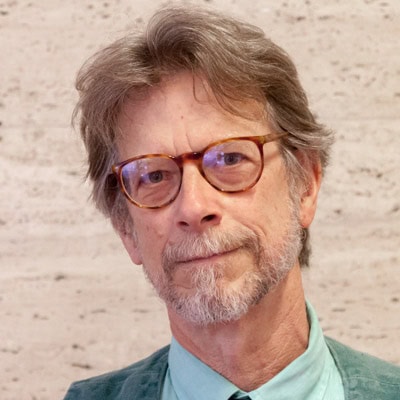William S. Monroe is a senior academic engagement librarian at Brown University Library. He lives in Providence, Rhode Island, and has been a member since 1980.

William S. Monroe
Website: wsmonroe.com
Alma mater/s: BA, Temple University, 1979; MSLIS, Drexel University, 1984; PhD, Columbia University, 2021
Fields of interest: early medieval Europe, papacy and canon law, manuscripts and incunabula
Describe your career path. What led you to where you are today?
I was the first in my family to finish high school, and like the others I went to work in a factory. After five years of that (and reading a great deal of history), I decided that I needed to get a college degree, and even a PhD, because I wanted to do history professionally. I had even settled on medieval history, so I took not only the required history courses but also the languages that I would need: Latin, French, German, and ancient Greek. Upon graduation, I was not aware that many PhD programs funded their students, and I was concerned about taking loans and not being able to get an academic job, so I decided that I would first get a library degree, and pursue the PhD part-time while working in a university library. This led to a long career in libraries, and almost as long a time working toward that PhD. It was easy to finish the course work, but researching and writing a dissertation part-time, and from afar, is difficult. But the process was great for my work in the library where I have been the subject librarian for many areas of history, for classics, philosophy, religious studies, as well as the curator of medieval manuscripts and early printed books in our special collections. I also published a few articles along the way. Now, as I approach retirement, I look forward to having the time to turn my dissertation into a book.
What do you like the most about where you live and work?
I grew up in a small industrial city about 40 miles from Philadelphia, and have lived in Philadelphia itself and in New York City. But I have now lived in Rhode Island for longer than I have lived anywhere else, and have found it to be a great place to live. Providence is a small and very liveable city, with a great symphony orchestra and a vibrant arts community. Brown University provides a stimulating intellectual environment, and I enjoy getting to know our great faculty and students. Rhode Island also has areas that are quite rural and forested, as well as a very long coastline (including the Narragansett Bay). It is also just one hour from Boston and less than four hours from NYC and from the mountains of Vermont and New Hampshire.
What projects are you currently working on?
I plan to retire in the next year or two, and want to turn my dissertation into a book. But in addition, I would like to continue working with our special collections here at Brown, and I have been making plans to co-teach a course on the history and evolution of writing systems, from cuneiform to emojis, using our collections to illustrate. I would also like to teach a seminar on Latin paleography for our advanced students in Classics and medieval and early modern studies.
Have your interests evolved since graduation? If so, how?
My work as a librarian pulls me into many directions I could not have foreseen. Some of the subjects I cover involve other languages, and I have found myself studying Biblical Hebrew, classical Syriac, modern Arabic, and others.
What’s the most fascinating thing you’ve ever found at the archives or while doing research?
I cannot rank anything as the most fascinating, but one thing is a series of leaves in a ninth-century manuscript in the Bibliothèque national de France. The manuscript contains an important collection of canon law, but these introductory leaves have a variety of illustrations, including trees of knowledge, of virtues and vices, and even a fabulous image of Noah’s ark, showing all the spaces where the different classes of animals were kept, where the food and waste were stored. Another leaf shows examples of complex monograms, but does not give any instruction on how to decipher them.
What do you value most about the history discipline?
It is the most interdisciplinary of subjects. Everything has its history, and these histories are all interconnected.
Why is membership in the AHA important to you?
It has been important to me to be connected to this network of scholars. Reading the AHR, Perspectives, and attending the annual conference (occasionally) have been very useful.
AHA members are involved in all fields of history, with wide-ranging specializations, interests, and areas of employment. To recognize our talented and eclectic membership, Perspectives Daily features a regular AHA Member Spotlight series.
This work is licensed under a Creative Commons Attribution-NonCommercial-NoDerivatives 4.0 International License. Attribution must provide author name, article title, Perspectives on History, date of publication, and a link to this page. This license applies only to the article, not to text or images used here by permission.
